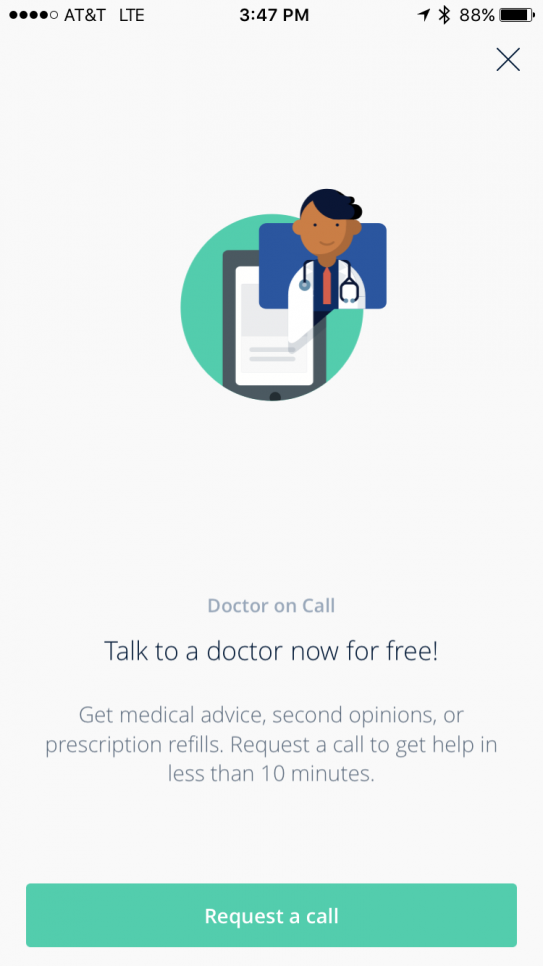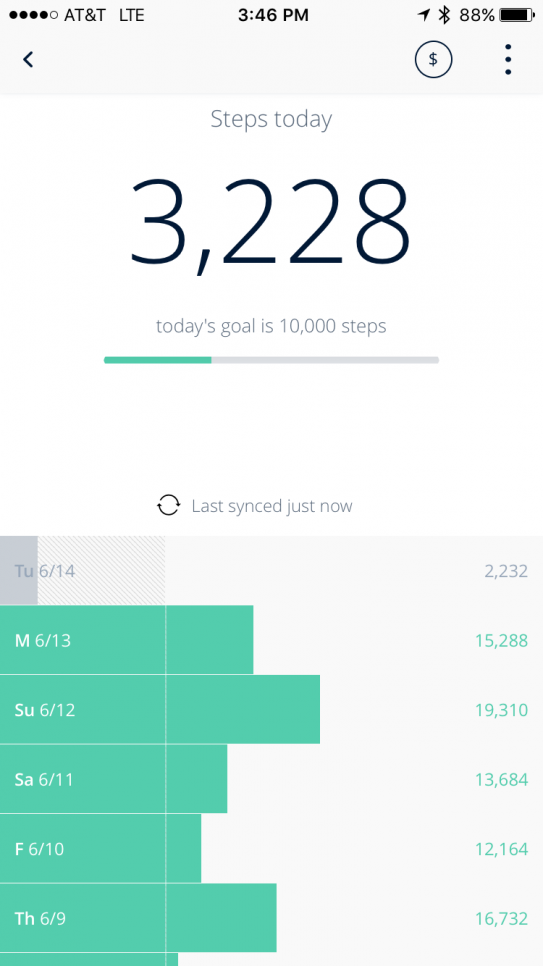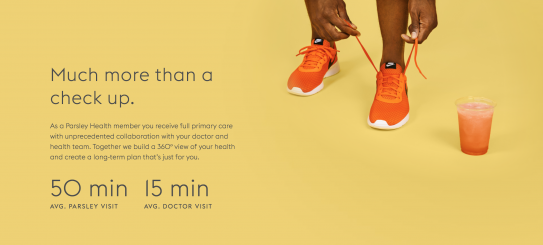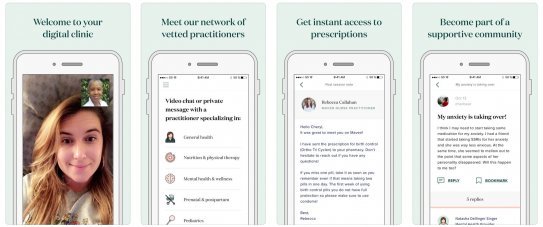
Start-ups shaking up the US healthcare sector
Most health insurance in the US is private. Since 1950, US household healthcare expenses have increased fivefold. Back in the 50s, food was one of Americans' biggest items of expenditure (averaging 22% of total household expenditure). Healthcare trailed far behind (averaging 3% of expenditure). Today, healthcare accounts for 18% of US household expenditure. (Source: NHE Fact sheet).
With more than $10,000 in expenditure per year and per person, this very juicy market inevitably attracts innovators and start-ups. In the healthcare sector, many start-ups are springing up and transforming Americans' relationships with firms in this field. SQLI Lab identified 3 firms to follow.
OSCAR, a health insurance pioneer
Transforming US health insurance is no small task, but the investors behind Oscar Health, the start-up co-founded by Joshua Kushner (brother of Donald Trump's advisor), believe the firm is set for massive growth.
The start-up, founded in 2012 to make the most of opportunities in the health insurance field created by Obamacare, raised 165 million dollars in new funding and was valued at 3.2 billion dollars at the end of March 2018.
Oscar Health believes it can compete with the biggest insurers by focusing on customer service and technology. The principle is simple: users pay a monthly contribution of between $480 and $880 (depending on their state of health and their needs) to access a wide range of services and benefits such as major rate discounts to see a list of doctors and an "Oscar" health centre where they can take cheaper medical tests, attend yoga lessons or see a doctor without an appointment.
Using the mobile application, there is also a service allowing customers to contact doctors 24/7. Just by clicking, users are put in touch with a healthcare professional by telephone, secure messaging or video chat. The doctor then sends a prescription to a pharmacy, saving the patient the cost of a traditional non-Oscar Health doctor's appointment.

Another of Oscar Health's advantages is the feature that motivates users to stay healthy by doing daily exercise. On signing up to the service, they get a pedometer calculating the distance they walk every day. If they do more than 10,000 steps in a day, they get a $1 Amazon gift voucher. The more active they are, the lower the risk of them needing to see a doctor, and spending money.

Finally, the application lets them make appointments with Oscar Health doctors or healthcare partners.
The business model is based on the simplicity and practicality of its overall customer experience. The start-up is growing due to it offering more services than its competitors, having fully understood the impact of its mobile application on the healthcare sector.
Parsley Health: a subscription system to see your doctor
The WeWork co-working space in New York houses all sorts of start-ups. Since 2016, it has also featured a medical start-up.
Parsley Health, which was created in 2016 and now has centres in Los Angeles, San Francisco and New York, is the only medical centre at WeWork. The practice focuses on functional medicine, which attempts to adopt a more global approach to treat the underlying cause of a particular disease. The functional medicine approach is about more than just giving patients more time with their doctor. The start-up also includes well-being and other elements that stimulate patient participation.
How does it work?
For $150 a month, Parsley Health members get a 75-minute appointment with a doctor plus follow-up visits, and nutritional advice sessions, as well as more in-depth genetic and microbiome testing.
The monthly subscription fee is higher than with most direct primary healthcare centres, which generally charge between $50 and $70, but it's still cheaper than concierge services, which often cost several thousand dollars a month.

Subscription is annual and the subscriber has the option of paying in advance or monthly. There is also the option of subscribing for a three-month trial period for $500. These costs do not include prescriptions, supplements or lab work.
Well-being is an important part of Parsley Health's solution, a trend that it highlights on its Instagram account. With more than 24,000 subscribers, the account shares training programmes, healthy meals and motivational quotes, which is unusual for a medical centre.
10 million dollars of financing is to be invested to develop the analysis engine to process patient data collected by Parsley Health, because the real value of its solution also lies in this data. The funding is also going to be used to finance the construction of its own clinics off WeWork premises.
For women's specific needs: Maven Clinic
Maven Clinic is a telemedicine start-up specialised in women's healthcare, so they can see a doctor without leaving home.
The company has already raised more than 15 million dollars. Launched in April 2015, it already has 25 employees and nearly 100,000 users, including both women and employers. Businesses offer Maven Clinic as a benefit to their female employees. As with any other telemedicine network, users can make a video appointment directly via the website or the mobile application (a 10-minute doctor's appointment costs $35).
The solution's USP is the experts available to users, such as breast-feeding specialists (an appointment costs $25 for 20 minutes) and midwives ($18 for 10 minutes). Employees have access to healthcare professionals and on-demand services, such as the option of sending questions to experts by text message
For example, Snap Inc., the parent company of the messaging application Snapchat, is one of the internationally best-known businesses that offers Maven's Maternity solution to its employees.

And what about employers? Businesses particularly join forces with Maven Clinic to provide their pregnant employees with a 15-month programme called Maven Maternity. The aim of the programme is to help women enjoy healthier pregnancies and return to work after giving birth under the best possible conditions.
The solution is financially interesting for US employers as their maternity expenses are particularly high. Furthermore, in the United States, one in two women does not return to work after giving birth, which costs companies a lot. Maternity is often one of the main expenses for self-insured employers. A report by Truven revealed that the average total amount invoiced for pregnancies and neonatal care was $30,000 on average for a natural birth and $50,000 for a Caesarean, and that commercial insurers cover on average $18,329 and $27,866 respectively.
Katherine Ryder, the founder of Maven Clinic, is one of the women attempting to disrupt the healthcare field, which is mainly dominated by men. According to a Forbes report dating from 2012, only 4% of healthcare sector company chairs and CEOs are women, despite them accounting for 78% of employees in the sector. Women generally have higher healthcare costs than men, due to their longer life expectancy and pregnancy costs, which are very high in the United States. So Maven Clinic represents a real opportunity to transform the healthcare sector by offering women a service developed by women and fully focused on their needs.
So there you have it: three start-ups looking to revolutionise a stagnant sector in the United States, which will undoubtedly force historical market leaders to go back to the drawing board with their solutions. Technology and innovative services have boosted a sector dominated by very large firms, which is still one of the main costs centres for both families and businesses in North America.